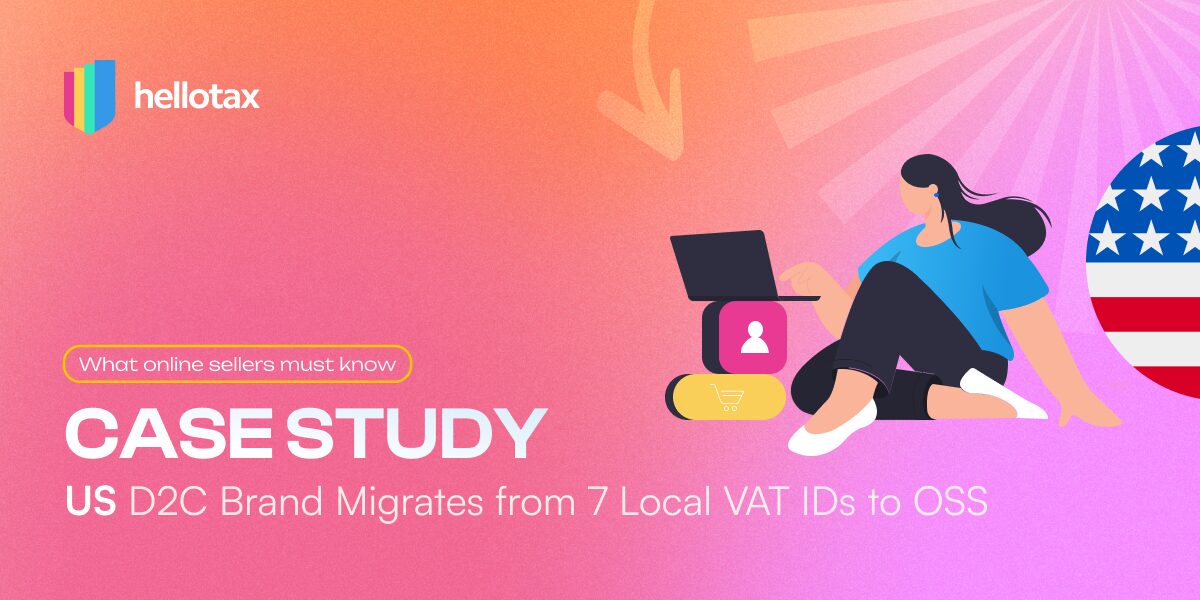Despite tax declaration and tax pre-payments, most entrepreneurs unfortunately know them only too well: the payment of VAT arrears. We will explain to you exactly what a VAT back payment is, why you are affected by it, how to proceed best and which rules and deadlines you have to observe.
Antonia Klatt
Last Updated on 28 September 2020
Begriffsdefinition Umsatzsteuernachzahlung
The VAT is a Europe-wide consumption tax assessed on the value of all goods and services sold within the EU.
In Germany for example, about 30% of all tax revenue comes from VAT. Usually the payment of VAT is calculated on the previous year’s earnings and transferred to the tax office in advance – as a so-called VAT advance payment.
However, the greater the deviations in a company’s turnover from year to year, the more likely it is that you will receive a refund of a remaining amount from the tax office or, on the contrary, will have to make a so-called VAT back payment/payment of VAT arrears.
A VAT back payment is a late additional payment to the VAT. The payment is required if the amount paid in advance is less than the VAT finally calculated.
Does it only concern self-employed persons and companies?
Who is actually affected by the back payment of VAT – only self-employed persons and companies? Not theoretically, but in practice. Employees also pay sales tax and are thus theoretically also affected by VAT back payments, but the employer deducts the VAT directly from the salary, keyword gross net salary.
Employees who are self-employed in addition to their job must of course deal with VAT and possible back payments of VAT, unless they make use of the small business regulation. So what are the possible reasons for back payments of VAT?
Larger fluctuations in the company’s annual turnover
Probably the most common reason for a back payment is fluctuations in the annual turnover of a company. Since the tax prepayment refers to the previous year’s sales, it can happen that too much or too little input tax has been paid in companies with irregular income. At the end of the year, this amount is then compensated by a refund from the tax office or by a back payment of VAT by the company.
Social benefits
Social benefits are normally tax-exempt, but are subject to progression. This means that the tax office will offset the benefits received against your regular income. Depending on the amount of the social security benefit, this can affect your tax rate. As a self-employed person, this can ultimately lead to a tax back payment.
Forgetting of income
Forgotten income often leads to back taxes. If you receive a pension or earn extra money by renting a condominium, this must be included in your tax return, even if it is not your main source of income. If such an error is discovered, the tax office will demand a back payment of VAT. Caution: A back payment of VAT, which summarizes several years and was offset with interest, can reach astronomical amounts, which usually cannot be handled quickly.
How do you book a back payment of VAT?
A VAT back payment is booked as an operating expense. In the statement of income surplus it is to be entered as an expenditure at the time of payment.
Da du keine Zahlungsaufforderung vom Finanzamt erhältst, kannst du im Notfall die Zahlung mit einem Eigenbeleg bestätigen.
Also note:
- The benefits must be allocated according to the assigned tax rates.
- Own consumption must be considered separately.
- If the advance return and the declared sales differ, this is an indication that there will probably be a payment of VAT arrears.
Avoid back payments of VAT
Now you surely want to know if it is possible to avoid a back payment of VAT. By generally avoiding back payments of tax, you can avoid paying interest that arises when payment deadlines are exceeded or that has to be paid for back payments that are more than one calendar year in the past.
Ultimately, you can avoid a VAT back payment by keeping a close eye on your income and expenses. The base value for your invoice is the amount you pay in advance. This way you know how much VAT you can earn more than you can spend. As long as your VAT surplus does not exceed the amount you paid in advance, you will not pay VAT and you may even get a refund from the tax office.
Tip: Put the VAT you collect directly into a separate account or sub-account and do not touch it until the monthly or quarterly statement. This way you will definitely always have enough money on your side in case there is a back payment of VAT and a shortime lack of money will never be an issue.
Conclusion
VAT back payments are part of entrepreneurship but knowing about it is almost enough to not get caught by surprise. Rely on professionals or tools such as hellotax, who will give you competent advice on tax and remind you of your tax payments – this will save you time, stress and unnecessary headaches.


